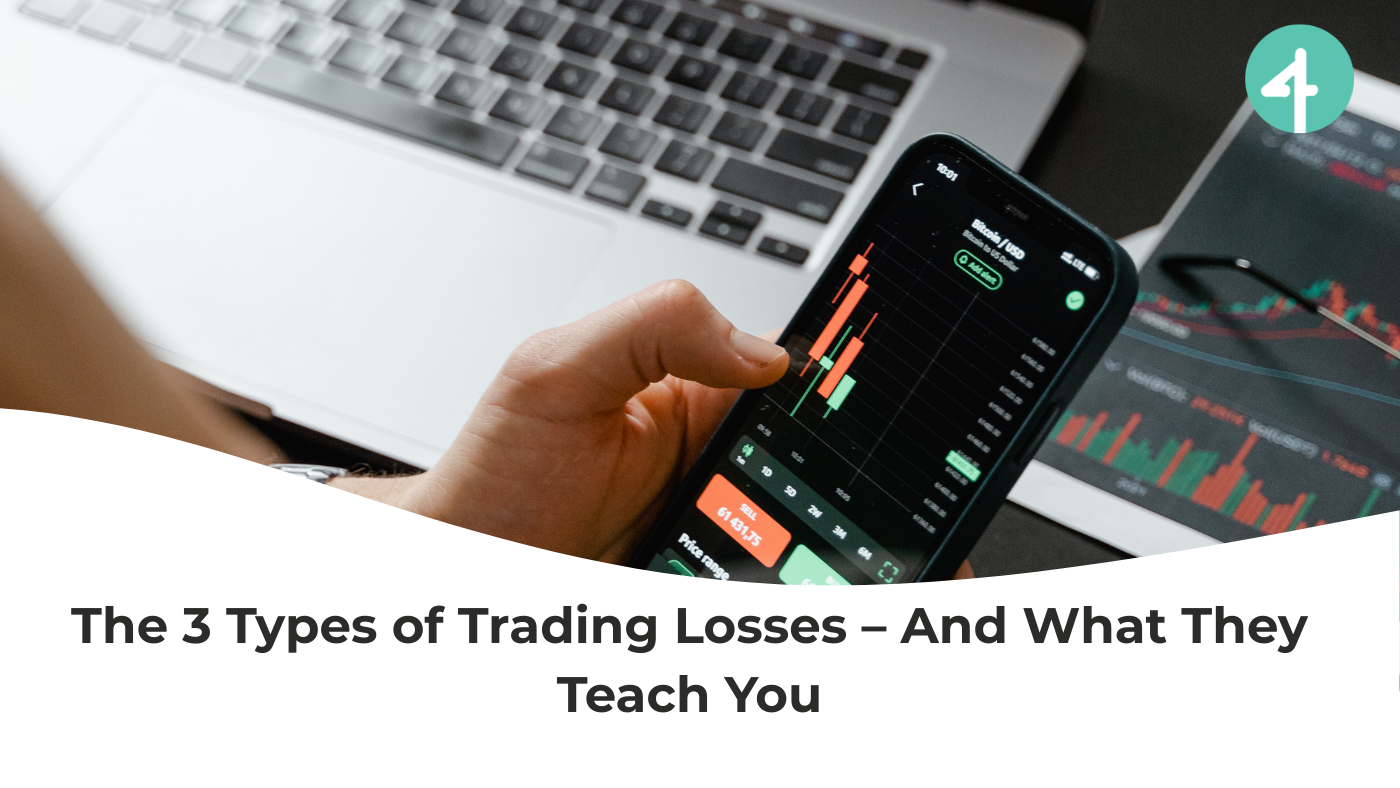Most people think all trading losses are equal. But if you want to evolve as a serious trader, you need to learn how professional traders categorize losses into just three key types.
Each tells a different story—and recognizing them early could be the difference between frustration and long-term profitability.
1. The “Oops” Loss: Costly, But Avoidable
Let’s start with the most common (and most frustrating) type.
A few days ago, I jumped back into the markets after a break, misread the trend, and entered a short trade completely out of sync with what was unfolding. Why? Because I rushed my process. I ignored signs that were right in front of me.
Sound familiar?
These are unforced errors—avoidable mistakes that even seasoned traders make. But here’s the difference between amateurs and professionals: professionals use a trading playbook to catch these errors early.
When you’re trading a proven setup and something doesn’t align, you spot the inconsistency fast. That gives you time to exit with minimal loss—before the trade does real damage.
✅ In my case:
- I quickly exited the wrong trade as price surged up.
- Then capitalized by flipping into a long trade, catching the momentum.
💡 Pro Tip:
Use a framework built around high-probability trade setups. You’ll never eliminate losses—but you can make them far less painful.
Want to learn how to build a trading strategy step-by-step? Explore our free Forex education portal.
2. The “Donation” Loss: When You’re Paying the Market
Let’s be honest—some losses aren’t about the market being unpredictable. They’re about you giving your money away without realizing it.
There are two kinds of traders:
- Those who consistently extract profits.
- Those who win just enough to stay in the game… while slowly bleeding their account dry.
Here’s the truth:
You don’t trade just to make money. You trade to take it—from those who don’t know what they’re doing.
And unless you understand:
- Where retail traders make emotional decisions
- Why beginners consistently overleverage or chase signals
- How crowd psychology creates predictable traps
…then you’re probably one of the ones donating to the market.
Mastering trading is like learning to ride a bike. You can’t just study theory—you need repetitive execution of well-understood setups. That’s how you move from donating capital to collecting it.
🎯 Want to avoid becoming a donator?
Open a demo account with Giraffe Markets and start practicing your execution today—risk-free.
3. The “Exclusivity Tax”: The Price of Playing the Real Game
This final type of loss is inevitable—and necessary.
None of your winning strategies will work 100% of the time. Trading is a probabilistic game, not a deterministic one.
But that uncertainty creates tension. And from that tension come behaviors that keep most traders stuck:
- Fear of pulling the trigger
- Hesitation after a loss
- Impulsive revenge trades
- Overconfidence after a win
- Emotional exhaustion
We call this the exclusivity tax—it’s what separates committed traders from weekend dabblers. You can’t avoid paying it, but you can reduce the cost by learning to quickly exit trades that break down.
If your process gives you early feedback, your losses will be small and contained. That frees you to stay confident and consistent.
📈 Want to learn how pros manage this tax daily?
Check out our article: “Building a Winning Trading Routine”
Final Thoughts
Every loss tells a story. And if you listen closely enough, you’ll become the kind of trader who learns from them—instead of being defined by them.
Ask yourself:
- Was this loss avoidable?
- Was I donating to the market without realizing it?
- Or was this just part of the game—the cost of staying in the winner’s circle?
At Giraffe Markets, we don’t just offer a platform—we offer the tools, resources, and support to help you grow as a trader.
Frequently Asked Questions (FAQs)
❓ What’s the best way to reduce unforced trading errors?
Using a consistent trading playbook with predefined setups and rules can help minimize impulsive decisions. Combine that with regular journaling and trade reviews.
❓ How do I stop overtrading after a loss?
Recognize it as an emotional response. Step back, reset, and wait for a high-quality setup that fits your strategy. This is where discipline separates amateurs from professionals.
❓ Can I become profitable even if I lose 50% of my trades?
Yes—if your risk-reward ratio is favorable and your losses are small. The goal isn’t perfection. It’s consistency and capital preservation.
❓ Where can I learn real strategies for managing losses?
Giraffe Markets offers webinars, live sessions, and educational articles focused on risk management, trade psychology, and strategy building. Start here.
Trade smart. Trade with insight. Trade with Giraffe Markets.
